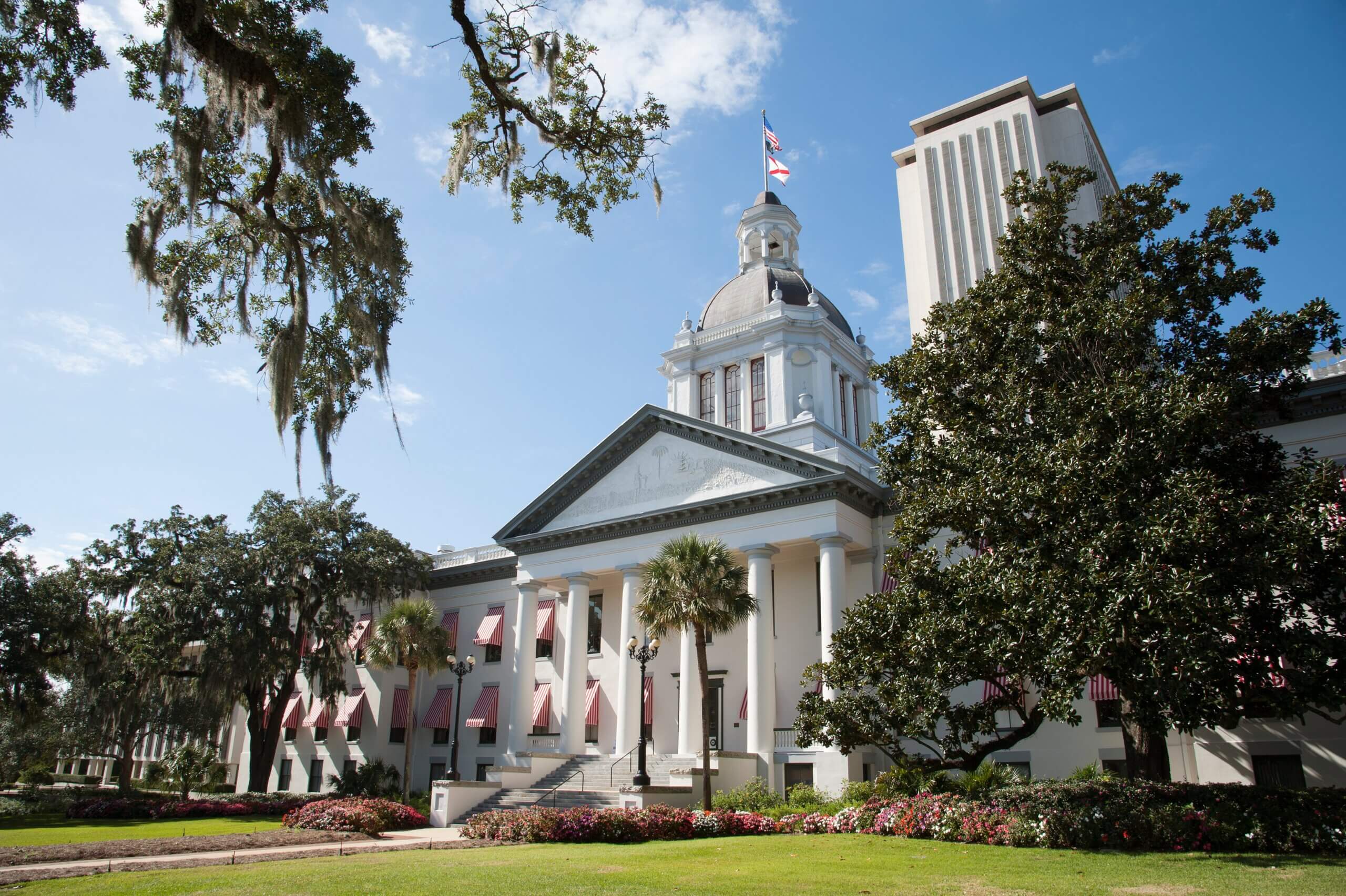
Secured Parties Beware: In Florida, All Debtor Name Errors are Fatal
Three years after the Florida Supreme Court decided 1944 Beach Blvd., LLC v. Live Oak Banking Co., the Florida Secured Transaction Registry still does not utilize “standard search logic”, which means that all debtor name errors continue to be fatal, rendering a financing statement seriously misleading and ineffective regardless of whether a search under the correct debtor name would uncover the filing.
What this is – Three years post –1944 Beach Blvd, LLC v Live Oak Banking Co., Florida’s Secured Transaction Registry still does not utilize “standard search logic”, meaning all debtor name errors continue to be fatal.
What this means – In one of the most important debtor name decisions in recent history, in 2022, the Florida Supreme Court decided 1944 Beach Blvd., LLC v. Live Oak Banking Co., 346 So. 3d 587 (Fla. 2022), (“Beach Blvd.”) holding that the Florida Secured Transaction Registry’s failure to employ ‘standard search logic’ precludes the applicability of the safe harbor provisions of Article 9. Three years later, looking back on the Beach Blvd case, we find the mechanics of the Florida Secured Transaction Registry unchanged, meaning that in Florida, all debtor name errors continue to be fatal, rendering a financing statement seriously misleading and ineffective regardless of whether a search under the correct debtor name would uncover the filing.
The Beach Blvd. Case
In the Beach Blvd. case, the debtor, 1944 Beach Boulevard LLC (“Beach Boulevard”), was a Florida limited liability company. Secured party, Live Oak Banking Co. (“Live Oak”) loaned Beach Boulevard over 3 million dollars. To secure its loan, Live Oak took a security interest in all of Beach Boulevard’s assets. To perfect its security interest, Live Oak filed two blanket UCC-1 financing statements with the Florida Secretary of State against the debtor “1944 Beach Blvd., LLC”, abbreviating the word “Boulevard” to “Blvd.”, an incorrect spelling of the debtor name.
Subsequently, Beach Boulevard filed for Chapter 11 bankruptcy, and a dispute arose in the bankruptcy court over whether Live Oak’s financing statements were legally sufficient considering the debtor’s name error. (As an aside, disputes over the effectiveness of financing statements come up frequently in bankruptcy cases, since there are competing interests not only among secured creditors, but in determining which portions of the debtor’s assets are part of the bankruptcy estate.)
Live Oak argued the debtor name error was minor, and the safe harbor provision in section 679.5061(3) of Florida’s UCC statute applied to its financing statements rendering them legally sufficient. Section 679.5061(3) is the exception to the “zero tolerance” debtor name rule of Section 679.5061(2). It states in part: “if a search of the records of the filing office under the debtor’s correct name, using the filing office’s standard search logic, if any, would disclose a financing statement that fails sufficiently to provide the name of the debtor…the name provided does not make the financing statement seriously misleading.”
The complication in Beach Blvd. arose because a debtor name search under the Florida Secured Transaction Registry (“the Registry”) does not display a finite number of “hits” the way that most state systems do. Rather, the Registry displays the entire index of every financing statement on record and lands on the page where the debtor name being searched would appear alphabetically if there were filings. In the Beach Blvd. case, a search of the Registry under the correct debtor name, “1944 Beach Boulevard, LLC”, brought the searcher to a page with filings with that debtor name. If the searcher scrolled to the previous page, Live Oak’s two filings naming “1944 Beach Blvd., LLC” as the debtor appeared on the index since Blvd comes before Boulevard alphabetically.
The bankruptcy court agreed with Live Oak’s contention that its financing statements were legally sufficient since they could be found by scrolling to the previous page of the Registry. Beach Boulevard appealed the bankruptcy court’s decision to the district court and lost, and appealed again to the Eleventh Circuit. The Eleventh Circuit sought the Florida Supreme Court’s guidance to determine where the line should be drawn when searching the Registry, as the relevant case law was conflicting. One case held that, for safe harbor purposes, a “search result” should be limited to one page of the Registry; while another case held that the searcher must review the entire Registry “to determine whether it discloses a financing statement with the debtor’s incorrect legal name”.
The Registry lists 20 names per page. Should the “search results” be limited to what appears on the page where the search lands? Should it be limited to the landing page and one page prior? What about one page after? How does any of this jibe with the fact that the entries are not static on the Registry – when a filing is added or deleted, the names move, sometimes to another page. For instance, a search of “1944 Beach Boulevard, LLC” done shortly after the ruling in Beach Blvd. , revealed that the two Live Oak filings under “1944 Beach Blvd., LLC” had moved. They were appearing on the same page as the correct debtor name, rather than on the previous page, as they had been at the time of this dispute.
Importantly, the Florida Supreme Court did not address those issues. Rather, it determined that, for the safe harbor to apply, a “threshold” question is whether a filing office must employ a “standard search logic”. In doing so, the court examined all 3 subsections of 679.5061 of Florida’s Article 9 statute which state:
- A financing statement substantially complying with the requirements of this part is effective, even if it has minor errors or omissions unless the errors or omissions make the financing statement seriously misleading.
- Except as otherwise provided in subsection (3), a financing statement that fails sufficiently to provide the name of the debtor in accordance with section 679.5031(1) is seriously misleading.
- If a search of the records of the filing office under the debtor’s correct name, using the filing office’s standard search logic, if any, would disclose a financing statement that fails sufficiently to provide the name of the debtor in accordance with section 679.5031(1), the name provided does not make the financing statement seriously misleading. [emphasis added]
The court held that the safe harbor of subsection (3) is premised on the existence and use of filing office “standard search logic” and the safe harbor cannot apply in this case or any other in Florida because the Registry does not utilize “standard search logic”. The court reasoned that “standard search logic” requires some finite amount of “specific hits” when a search is conducted. The Registry does not produce any “hits” but instead opens the entire index. Because of this, the court said, “unless and until the Registry employs a standard search logic, under the zero-tolerance rule of subsection (2), any financing statement that fails to correctly name the debtor…is ‘seriously misleading’ and therefore ineffective.”
… the court said, “unless and until the Registry employs a standard search logic … any financing statement that fails to correctly name the debtor…is ‘seriously misleading’ and therefore ineffective.”
“Unless and until the Registry employs standard search logic”…
The above quote from the Florida Supreme Court in Beach Blvd. leads us to why we are revisiting this case three years later: the Registry still does not employ standard search logic. Therefore, the safe harbor of subsection (3) continues to be inapplicable in Florida and secured parties must beware.
The inapplicability of the safe harbor to the Registry impacts many filings and secured parties. In a recent law review article, “The Florida UCC Filing System Disaster”, Professor Lynn M. Lopuk conducted an empirical study to estimate the “fatal name-error rate” for financing statements filed in the Registry from 2019 to early 2023. Professor Lopuk states “the study found that under the Florida Supreme Court’s zero-tolerance test, 32% of UCC filings in Florida against registered organizations—over 230,000 filings—are ineffective by reason of name errors alone. Even if Florida had adopted the traditional search logic used in other states and qualified for the safe harbor, 5% of the filings—about 11,650 filings—would still have been ineffective for name errors alone.”
Do you want to know more about Avoiding Fatal Debtor Name Mistakes on UCC Financing Statements? Register to view our on-demand webinar.
When contemplating those daunting numbers, consider that the burden has always been on the filer to get the debtor’s name right. The safe harbor never guarantees that the search for the correct debtor name will uncover a filing with even a minor debtor name error, let alone a major one. In the Beach Blvd case , even if Florida had adopted the Model Administrative Rules for Searching (something that several states have done), the secured party would have still lost because a search of “Boulevard” would not have uncovered “Blvd” as that is a very different word, and it would not be considered a “noise word” that is ignored. Safe harbor or no safe harbor, the required practice is and always has been for filers to correctly name the debtor on a financing statement.
Notably, in making its determination, the Florida Supreme Court stated it was careful to not place new burdens on searchers. Under Article 9, a searcher’s only duty is to search under the correct debtor’s name. Because the Registry does not produce a finite number of hits, it opens the door to subjectivity and uncertainty, where the searcher or a court is having to decide how many pages are reasonable to scroll and what is a close enough name variation. And, limiting the search results to one or two pages would not work either. As mentioned, the Registry is not a static index – what appears on one page one day could move to another page the next day. Plus, it is possible to have more than 20 exact debtor name matches – so, if the court limited the “search results” to a finite number of pages, it’s possible that additional exact matches might appear on subsequent pages and would either be missed or disputed.



Leave Us A Comment
Did you find this article useful? We'd love to hear your thoughts. Join the conversation by leaving a comment or question below.